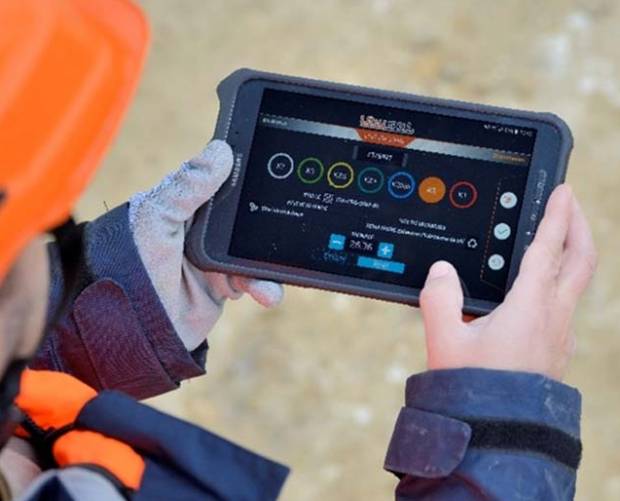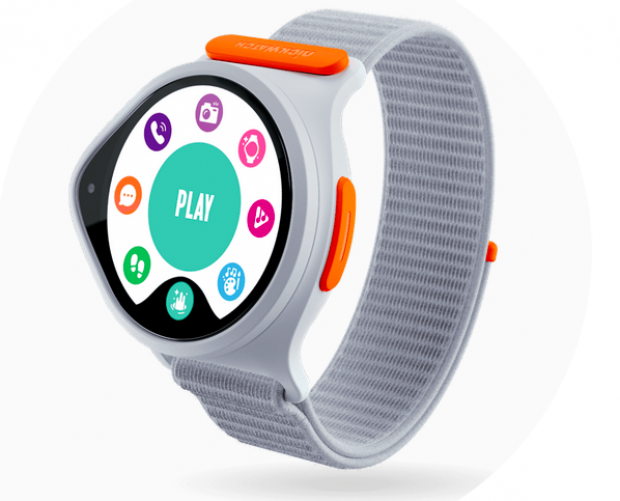If you've been to one of Dot Media's events, you'll know that our Innovation Lab hosts companies presenting cutting-edge technology that's poised to transform the market with groundbreaking ideas and solutions.
In that spirit, we've taken a step beyond the world of apps, ads and handsets with slightly bigger screens, in order to share some of the tech world's most innovative ideas. They might be interesting, disruptive or just outright strange, but these are the stories that have caught our eye over the past week.
 Microsoft Developing Ceiling Lamps That Recharge Your Phone with Light
Microsoft Developing Ceiling Lamps That Recharge Your Phone with Light
Wireless charging, once the stuff of science fiction, is becoming increasingly popular, with brands like McDonald's and Starbucks introducing it to their restaurants to enable customers to charge their smartphones without the need for plug sockets or clunky, easily tangled chargers.
However, Microsoft is working an even more futuristic system called AutoCharge, which uses solar charging to power phones through a light beam projected from special lamps on the ceiling. The lamps even include cameras that track the phone's location within the room, focusing the charging beam on devices automatically.
The system is still in its early days, but a working prototype has been constructed. It can recognise when a phone is in need of charging or if its already full, and even prioritise multiple devices in order of need. It takes around two-and-a-half hours to charge a standard 2000mAh battery, faster than standard solar charging thanks to the straight light beam used which improves efficiency.
The biggest hurdle would be persuading manufacturers to include solar charging systems within phones, which would be required for the system to work. Microsoft have said they don't envision the system replacing traditional charging, but as a home system it would add a level of convenience and ease.
 Samsung Developing Wearable that Provides Early Warning System for Strokes
Samsung Developing Wearable that Provides Early Warning System for Strokes
A group of Samsung engineers have developed a wearable device that uses brainwave detection to provide information on the probability of an oncoming stroke, creating an early warning system that could help avoid the worst consequences of stokes.
The device was created within Samsung's Creativity Lab, where employees have the opportunity to explore creative ideas and develop them into commercially viable products. When they first approached neurologists about the idea of detecting the onset of a stroke by monitoring brainwaves, many were dismissive, but the team was determined.
"Just look at the World Health Organisation statistics," said Se-hoon Lim, the project lead for the team. "15m people across the world suffer from stroke each year with roughly 66 per cent of those cases resulting in either death or permanent physical disabilities."
The Early Detection Sensor & Algorithm Package (EDSAP) monitors electrical impulses within the brain through sensors placed on a headset, transmitting the data to a mobile app which analyzes the patterns using a specially developed algorithm, providing feedback within 60 seconds. It can also provide data on other neurological health issues, such as stress, anxiety and sleep patterns.
Microsoft's "Smart Scarf" Aims to Help People with Autism
Microsoft has presented a paper on a smart scarf that can be commanded to heat up or vibrate through an accompanying app at Standford University's Conference on Tangible, Embedded and Embodied Interaction.
While it may sound like another ridiculous wearable, incorporating technology where it's not needed, the idea behind the scarf is help people with disorders such as autism manage their feelings and calm themselves when distressed.
According to the MIT Technology Review, the researchers worked with people with autistic-spectrum disorders, as well as those with impaired sight and hearing while developing the scarf, which is made up of various customisable modules which can heat or vibrate, and can be arranged as the user wants them.
 Clothing Brand The Affair Launches Digital Privacy Fashion
Clothing Brand The Affair Launches Digital Privacy Fashion
UK menswear clothing brand The Affair has released a range called 1984 which incorporates a fabric Faraday cage into the pockets, preventing mobile, GPS, wi-fi and RFID signals from penetrating them.
According to the company, the collection "combines the workwear style of Orwell's novel with stealth fabric technology to create a collection of premium streetwear that makes you invisible to Big Brother."
The range was financed through a crowdfunding campaign on Kickstarter which earned around £47,000, with prices ranging from $29 (£19) for an individual pocket which can be incorporated into existing clothes, up to $119 for a jacket or blazer with the tech integrated.
 Argentine Lab Unveils Budget Bionic Arm
Argentine Lab Unveils Budget Bionic Arm
Bioparx Health Technology, an Argentina-based engineering lab, has revealed what it calls the first low-priced prosthetic arm in Latin America to include nerve-impulse responsive sensors.
The bionic skeleton of the arm includes a flexible hand consisting of index, middle finger and thumb which is then covered with a lifelike latex glove. The prosthetic detects electrical signals that are generated by the muscles at the point of contact between the arm and prosthetic and uses these to control the motors within the hand.
The prosthetic, which will hit the market later this year, will retail for around £14,600, compared to similar devices which cost £31,300 on average. The company hopes that the relatively low cost will enable insurance companies to include the device within coverage plans, and make it more likely that individuals can purchase one for themselves.







